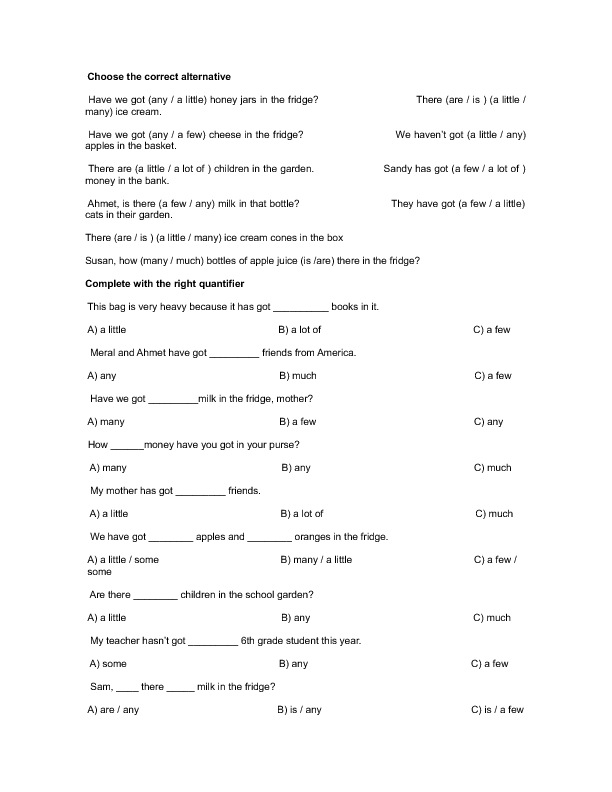

I have about the same (amount / number) of work to do as before, but I have (less / fewer) stress and (less / fewer) problems.Ĥ. How do you feel about your new job? Do you have as (much / many) responsibilities as you used to? Yeah, I think I've got (some / any) left over from the party.ģ. Can you bring soda to the picnic? I don't have (some / any). Yeah, the (amount / number) of people driving is incredible.Ģ. Section 1.Complete the following exercise with the correct quantifiers, choosing from the items given.Section 1.8 - Proof Methods and Strategy - Computations and Explorations.Section 1.8 - Proof Methods and Strategy - Computer Projects.Section 1.8 - Proof Methods and Strategy - Supplementary Exercises.Section 1.8 - Proof Methods and Strategy - Review Questions.Section 1.8 - Proof Methods and Strategy - Exercises.


Section 1.5 - Nested Quantifiers - Exercises.Section 1.4 - Predicates and Quantifiers - Exercises.Next Answer Chapter 1 - Section 1.4 - Predicates and Quantifiers - Exercises - : 33 Previous Answer Chapter 1 - Section 1.4 - Predicates and Quantifiers - Exercises - : 31 Will review the submission and either publish your submission or provide feedback. You can help us out by revising, improving and updatingĪfter you claim an answer you’ll have 24 hours to send in a draft. This means: All pigs can not swim or not catch fish.

$\neg (\exists x(T(x) \land U(x))) \equiv \forall x \neg(T(x) \land U(x)) \equiv \forall x (\neg T(x) \lor \neg U(x)) $ The negation is then by De Morgan’s Law for Qualifiers and the regular De Morgan’s Law: We can then rewrite the given statement as: $\neg (\forall x(\neg S(x))) \equiv \exists x \neg (\neg S(x)) \equiv \exists x S(x) $Į) Let the domain be pigs and T(x) mean "x can swim" and U(x) mean "x can catch fish“. The negation is then by De Morgan’s Law for Qualifiers and the double negation law: We can then rewrite the given statement as ”every monkey can not. This means: There is a koala that cannot climb.ĭ) Let the domain he monkeys and S(x) mean ’ x can speak French'. $\neg (\forall x R(x)) \equiv \exists x \neg R(x)$ $\neg (\exists xQ(x)) \equiv \forall x \neg Q(x)$Ĭ) c) Let the domain he koalas and R(x) mean “x can climb”, rewrite the given statement as: This means: There is a dog that does not have fleas.ī) Let the domain be horses and Q(x) mean "x can add”. $\neg (\forall xP(x)) \equiv \exists x\neg P(x)$ The negation is then by De Morgan’s Law for Qualifiers: A) a) Let the domain be dogs and P(x) mean "x has fleas”.


 0 kommentar(er)
0 kommentar(er)
